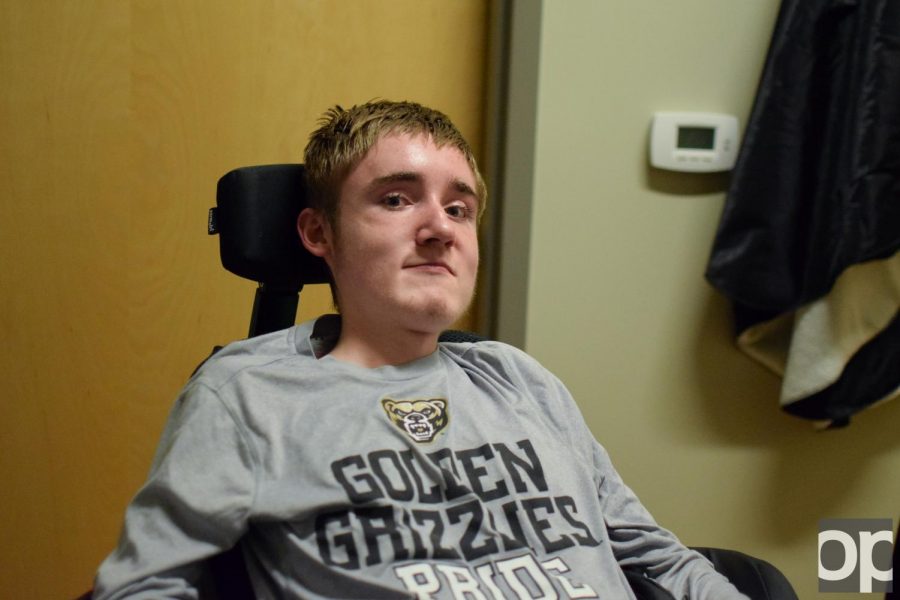Student has access to assistive technologies in dorm room
It first makes itself known between the ages of three and five. It first starts to affect movement in the hips, legs and shoulders due to progressive muscle degeneration and weakness. This genetic disorder is due to an absence of dystrophin, a protein that helps keep the muscles in tact. Freshman Robbie Ivey has Duchenne muscular dystrophy, one of nine types of muscular dystrophy, which mainly affects boys. Ivey has limited movements due to his condition.
“I always have to think where’s the handicap spots, or any accessibility,” Ivey said. “Otherwise I’m just a normal 19-year-old college student.”
A native of Iron River, a small town in the Upper Peninsula about eight hours away from the metro Detroit area, Ivey was a part of a very small group of people in his town that had to use a wheelchair. His family would travel with a portable ramp in their car so he could get into buildings in his hometown.
The transition of coming to Oakland University has been both easy and difficult for Ivey. Ivey’s sister, Maggie, attends OU and helps out when she can.
“My sister goes [to OU], so I wanted to go to a place where I knew people already, and not up by me where everybody in my town is together,” Ivey said. “I kind of wanted to do my own thing.”
Ivey and his family had to meet with Coordinator of Disability Support Services (DSS) Christy Gough before coming to campus in order to make sure the university could provide everything he needs.
“We meet with the student to determine what kind of accommodations they might need so that we can then approve those and put them in place to ensure accessibility on campus,” said Sarah Guadalupe, director of DSS.
In order to ensure he would have an easy transition to living on his own, Ivey worked with the DSS to set up his room in Oak View Hall with Google Home and Alexa. The devices he provided allow Ivey to control the lights, T.V. and his bed with a simple voice command.
DSS worked behind the scenes with the information technology (IT) department to set up the assistive technology in Ivey’s room.
“We worked behind the scenes…with Housing and our student affairs IT department to ensure that everything was going to work because it works off of wifi,” Guadalupe said. “[The IT department] had to do certain…work to make sure that his assistive technology devices would work within the OU parameters.”
Ivey’s bed is particularly helpful because it moves up and down when he commands. Due to his muscular dystrophy, Ivey has to be moved every couple of hours. Since his bed moves, it reduces Ivey’s need for someone to move his body for him.
“[The bed] helps so that a family member, or caregiver, wouldn’t have to help,” Guadalupe said. “He’s got that special technology that kind of helps so that he can control it rather than having someone else do that for him. It really provides [him] more independence.”
Even though Ivey is a student with a disability, he’s still an average college student who enjoys video games and the Green Bay Packers, and hopes to become a general manager for an NFL team someday.
“All of us are here for the same thing — to get a degree and hopefully get a good job,” he said.











